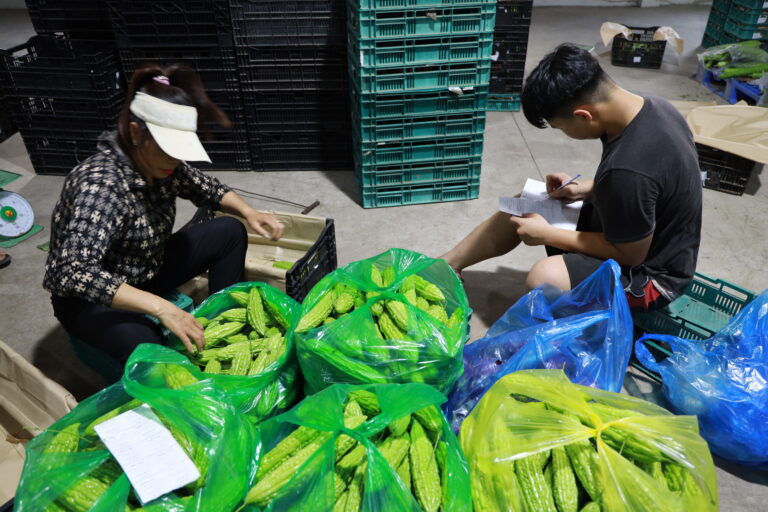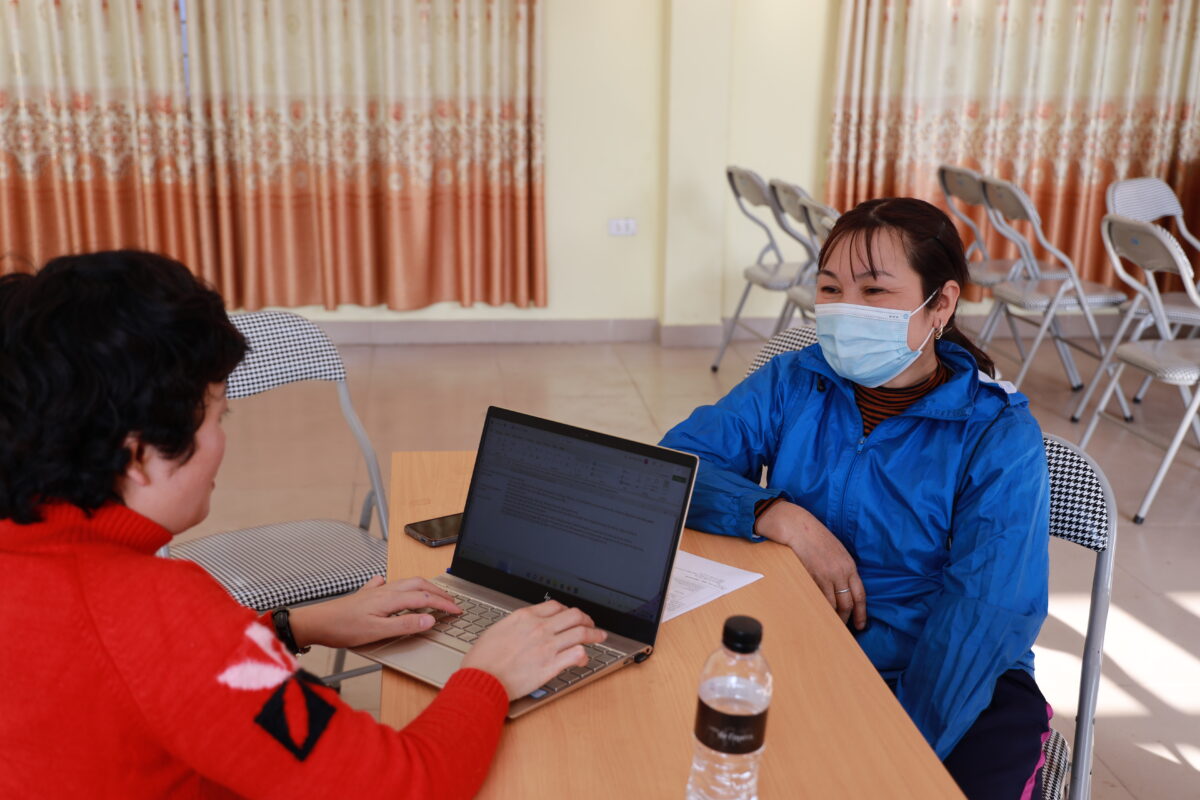
Gender equality means that all people, including men and women, have equal positions and roles, and are given conditions and opportunities to develop their capacities. They can make choices or decisions on their initiative without being constrained by stereotypes, stereotypes, and rigid gender roles. SAFEGRO’s Gender Equality and Women’s Empowerment (GEWE) Strategy is committed to creating equal opportunities for all participants and beneficiaries of the Project.
During gender-based value chain survey of vegetable in Hanoi, the project had the opportunity to learn more deeply about the gender roles of men and women in each step of the value chain. Women play an important role in agri-food value chains, from production and processing to distribution and consumption. In the survey areas, in addition to production roles, women are carrying the burden of housework. Women are still expected to have the main role in taking care of both family members and housework.
In the interview, Ms. N.T.H shared that she is the only one person in charge of all the housework (such as taking care of the children, cleaning, cooking for the whole family). Her working time is on average 14 hours/day, from 5 am to 12 pm at night. , and no lunch break. Her husband’s average working time is 11 hours/day, from 7 am to 12 pm, with at least 1 hour lunch break.

She also shared that: “I don’t know what gender equality is. I only know that since the day I got married, I have never been supported at least to wash dish for 30 years. Looking around the neighbors, most of the housework is taken by women. I think housework is not just for men or women. Housework is for both. So, if the Project does anything, I think that the communication for housework should be shared for both men and women. We’re so tired. Sometimes he went home when it was messy, he yelled me immediately, he asked me what I did at home, I said, I work the same with you, who else do you yell at? In conclusion, just bring communicating about GE to men.”
Ms. H’s story is similar with many other rural women. Nowadays, women are playing the dual role: Both participating in production and take the main responsibility of the housework. Gender equality, according to Ms. H’s concept, is probably not something sublime or “hating men”, as people think. Gender equality does not mean that women and men will become the same but that women’s and men’s rights, responsibilities and opportunities will not depend on whether they are born male or female.

